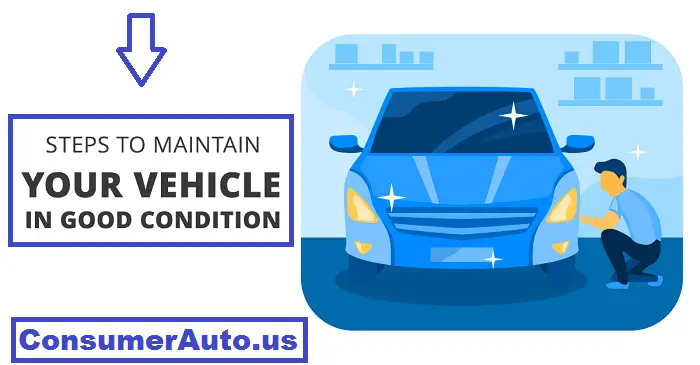Welcome to our extensive and detailed guide to car maintenance, designed to help you become a responsible and knowledgeable car owner. Owning a car is a significant investment, and proper care is essential to ensure its longevity and optimal performance. This comprehensive guide covers everything you need to know about car maintenance, from the basics to advanced practices. By following our expert advice, you can keep your vehicle running smoothly and reduce the risk of unexpected breakdowns, all while saving money on potential costly repairs.
Chapter 1: The Importance of Regular Car Maintenance
Car maintenance goes beyond occasional repairs; it involves a series of routine tasks that contribute to the safety, performance, and longevity of your vehicle. In this chapter, we’ll delve into the critical reasons why regular car maintenance is essential:
- Enhanced Safety: Learn how well-maintained vehicles are less likely to experience sudden malfunctions that could lead to accidents, ensuring the safety of both you and your passengers.
- Cost Savings: Discover how addressing small issues early on can prevent them from escalating into more significant and expensive problems, saving you money in the long run.
- Retained Value: Understand how a well-maintained car retains its value over time, making it easier to sell or trade in for a newer model when the time comes.
- Improved Fuel Efficiency: Explore how regular maintenance contributes to improved fuel efficiency, translating into cost savings at the gas pump and a greener footprint.
Chapter 2: Understanding the Basics of Car Maintenance
In this chapter, we’ll cover the fundamental aspects of car maintenance that every car owner should be familiar with. From checking fluid levels to monitoring tire health and caring for the car’s battery, we’ll guide you through the following topics:
- Checking Fluid Levels: Learn how to monitor and maintain essential fluids such as engine oil, coolant, brake fluid, power steering fluid, and transmission fluid to keep your car’s systems running smoothly.
- Monitoring Tire Health: Discover the importance of proper tire pressure, measuring tread depth, performing tire rotation, and understanding wheel alignment for enhanced safety and prolonged tire lifespan.
- Battery Care: Understand the significance of the car’s battery in the electrical system and learn how to inspect, clean, and maintain its terminals to prevent unexpected breakdowns.
Chapter 3: DIY Car Maintenance Tips
If you enjoy getting hands-on with your car, this chapter is for you. We’ll provide a range of do-it-yourself maintenance tasks that are relatively simple and can save you money on service costs. The DIY tasks covered in this chapter include:
- Changing Engine Oil and Oil Filter: Follow our step-by-step guide on draining old oil, replacing the oil filter, and adding fresh oil to keep your engine healthy.
- Replacing Air Filters: Learn how to improve engine performance and fuel efficiency by replacing both the engine air filter and the cabin air filter.
- Spark Plug Replacement: Discover when and how to replace faulty spark plugs to maintain smooth engine operation.
- Brake Pad Inspection and Replacement: Ensure your brakes are in top shape by learning how to inspect and replace brake pads.
- Checking and Replacing Fuses: Understand how to identify and replace faulty fuses to address electrical issues in your car.
- Changing Windshield Wiper Blades: Learn how to change wiper blades for better visibility during inclement weather.
Chapter 4: Regular Maintenance Schedule
To ensure you don’t overlook essential tasks, this chapter provides detailed checklists for monthly, quarterly, bi-annual, and annual maintenance. Following these schedules will help you keep your car in excellent condition and prevent potential problems.
Chapter 5: Keeping Your Car’s Exterior in Top Condition
Your car’s exterior not only contributes to its appearance but also protects it from environmental damage. In this chapter, we’ll cover various topics related to maintaining your car’s exterior:
- Washing and Waxing: Discover proper washing techniques and the benefits of waxing to maintain your car’s shine and protect its paint.
- Dealing with Scratches and Minor Paint Damage: Learn how to address superficial scratches and blemishes on your car’s paintwork.
- Preventing Rust and Corrosion: Understand how to prevent and treat rust, especially in areas prone to corrosion, to protect your car’s body.
Chapter 6: Interior Car Care
A clean and well-maintained interior enhances your driving experience and ensures a pleasant environment for you and your passengers. This chapter covers the following topics:
- Cleaning and Vacuuming: Explore proper cleaning methods to keep your car’s interior fresh and tidy.
- Upholstery and Carpet Maintenance: Learn tips for cleaning and maintaining your car’s upholstery and carpeting.
- Dashboard and Console Care: Discover how to protect and clean your dashboard, center console, and other interior components.
- Dealing with Odors: Explore methods to tackle unpleasant odors and keep your car smelling fresh.
Chapter 7: Ensuring Proper Vehicle Lighting
Proper lighting is essential for visibility and safety on the road. This chapter covers the following topics related to vehicle lighting:
- Checking and Replacing Bulbs: Follow step-by-step instructions for inspecting and replacing headlights, taillights, and other bulbs.
- Maintaining Headlights and Taillights: Learn tips for keeping your car’s lights clear and free from damage or discoloration.
- Importance of Signal Lights: Understand the significance of turn signals and their regular maintenance for safe driving.
Chapter 8: How to Handle Emergency Situations
Despite all precautions, emergencies can happen. This chapter provides guidance on how to handle common car-related emergencies, including:
- What to Do in Case of a Breakdown: Follow essential steps to take if your car breaks down on the road.
- Dealing with Flat Tires: Learn how to safely change a flat tire and the importance of carrying essential tools.
- Addressing Overheating Issues: Understand the causes of engine overheating and how to respond to prevent further damage.
Chapter 9: Understanding Unusual Car Noises
Cars can produce various noises, some of which may indicate underlying problems. In this chapter, we’ll explain common car noises and their possible causes, helping you diagnose potential issues early on.
Chapter 10: The Role of Professional Maintenance
While DIY maintenance is beneficial, some tasks are best left to professionals. This chapter explores the following aspects:
- Importance of Regular Checkups: Understand the value of having your car inspected regularly by a professional mechanic.
- Selecting a Trustworthy Mechanic: Learn tips for finding a reputable and reliable mechanic or service center for your car.
- Understanding Repair Estimates: Discover how to interpret repair estimates and avoid unnecessary expenses when seeking professional maintenance.
Chapter 11: Extending the Lifespan of Your Car
Longevity is a top priority for car owners. In this chapter, we provide guidance on the following:
- Regularly Scheduled Maintenance: Explore the direct link between proper maintenance and extending your car’s lifespan.
- Protecting the Car’s Engine: Learn essential steps to protect your car’s engine from premature wear and tear.
- Preserving the Transmission: Discover tips for maintaining a healthy transmission and avoiding costly repairs.
- Tips for Prolonging the Battery Life: Maximize your car’s battery lifespan through proper care and usage.
Chapter 12: Fuel Efficiency and Eco-Friendly Practices
In this environmentally conscious age, fuel efficiency and eco-friendly practices are critical. This chapter covers the following topics:
- Maintaining Optimal Fuel Efficiency: Explore practices to enhance your car’s fuel efficiency and reduce gas consumption.
- Eco-Friendly Driving Habits: Learn how your driving habits can impact fuel efficiency and reduce your carbon footprint.
- Choosing Environmentally-Friendly Products: Understand the importance of using eco-friendly car care products.
Chapter 13: Frequently Asked Questions (FAQs)
We address common queries in this chapter, providing answers to frequently asked questions about car maintenance, including:
FAQ: What maintenance tasks should I do regularly?
- Why is regular maintenance important for my car? Regular maintenance is essential to keep your car running smoothly and to prevent costly breakdowns. By performing routine maintenance tasks, you can extend the lifespan of your vehicle and maintain its resale value.
Three most important points:
- Regular maintenance ensures the proper functioning of various components in your car.
- It reduces the risk of unexpected breakdowns, enhancing safety on the road.
- Keeping up with maintenance can save you money on expensive repairs in the long run.
- What are some basic car maintenance tasks that I can do myself? There are several basic car maintenance tasks that you can perform on your own, even if you’re not an expert mechanic. These tasks are relatively simple and can save you money on service costs.
Three most important points:
- Checking and maintaining proper tire pressure helps improve fuel efficiency and tire longevity.
- Regularly inspecting and replacing air filters enhances engine performance and extends its life.
- Keeping your car’s exterior and interior clean not only improves aesthetics but also prevents rust and damage.
- Should I follow the car manufacturer’s maintenance schedule? Yes, it’s crucial to follow the car manufacturer’s recommended maintenance schedule. The manufacturer understands the engineering of your vehicle best and provides guidelines for the optimal maintenance intervals.
Three most important points:
- Adhering to the maintenance schedule ensures that your car’s warranty remains valid.
- The manufacturer’s recommendations are based on extensive testing and research to optimize your car’s performance.
- Regular servicing can detect potential issues early, preventing them from becoming major problems.
FAQ: Can I perform basic car maintenance myself?
- Are there any risks to performing basic car maintenance myself? While basic car maintenance tasks are usually straightforward, there are some risks involved, especially if you lack experience or proper tools. Incorrectly performing maintenance tasks could lead to further damage or accidents.
Three most important points:
- Always research and educate yourself thoroughly before attempting any maintenance tasks.
- Be cautious while working under the vehicle or handling tools to avoid injuries.
- If you’re unsure about a task’s complexity, it’s best to consult a professional mechanic.
- What are some basic car maintenance tasks that I can safely do myself? Several basic car maintenance tasks are relatively safe for DIY enthusiasts. These tasks are simple and require minimal tools and knowledge.
Three most important points:
- Checking and topping up fluids like engine oil, coolant, and windshield washer fluid.
- Inspecting and replacing wiper blades to ensure clear visibility during rain or snow.
- Regularly checking tire pressure and inflating them to the recommended levels.
- When should I seek professional help for car maintenance? While basic tasks can be handled independently, there are instances where professional help becomes necessary. It’s essential to recognize when a problem exceeds your expertise.
Three most important points:
- Any unusual or concerning noises coming from the engine, brakes, or suspension should be checked by a professional.
- Complex repairs or tasks involving the electrical system should be handled by experienced mechanics.
- If you lack the tools or equipment required for a specific maintenance task, it’s best to leave it to professionals.
FAQ: How often should I change my engine oil?
- What role does engine oil play in my car? Engine oil is vital for lubricating the engine’s moving parts, reducing friction, and carrying away heat. It helps to maintain the engine’s efficiency and prevents premature wear and tear.
Three most important points:
- Engine oil acts as a protective barrier between metal components, reducing friction and wear.
- It helps to cool down the engine by dissipating heat generated during combustion.
- Engine oil also prevents the formation of harmful deposits and sludge, ensuring a cleaner engine.
- How frequently should I change my engine oil? The frequency of oil changes depends on your car’s make and model, driving conditions, and the type of oil used. However, a common recommendation is to change the engine oil every 5,000 to 7,500 miles or every six months, whichever comes first.
Three most important points:
- Regular oil changes ensure the engine operates at its best, promoting longevity.
- Driving in severe conditions, such as extreme temperatures or stop-and-go traffic, may require more frequent oil changes.
- Always refer to your car’s owner’s manual for the manufacturer’s specific oil change interval.
- Can I extend the oil change interval beyond the manufacturer’s recommendation? While advancements in oil and engine technology have extended oil change intervals, it’s essential not to exceed the manufacturer’s recommendation. Extended oil change intervals can lead to increased engine wear and decreased performance.
Three most important points:
- Over time, engine oil degrades, losing its lubricating properties, and becomes contaminated with debris.
- Going beyond the recommended interval may void your car’s warranty if engine issues arise.
- Regular oil changes are a relatively inexpensive maintenance task compared to the cost of major engine repairs.
FAQ: What causes unusual car noises?
- Why is it concerning to hear unusual noises from my car? Unusual car noises can be indicative of underlying issues that, if left unaddressed, may lead to more significant problems or even breakdowns. Identifying and addressing these noises promptly is crucial for maintaining a safe and reliable vehicle.
Three most important points:
- Some noises may signal safety-related issues, like brake squealing or grinding.
- Ignoring unusual sounds could result in more expensive repairs down the road.
- Addressing the root cause of the noise can help prevent further damage to your car.
- What are some common causes of unusual car noises? Unusual car noises can have various causes, ranging from minor issues to more complex mechanical problems.
Three most important points:
- Squealing or grinding brakes may indicate worn-out brake pads or a brake system issue.
- Clicking or popping sounds during turns could signify problems with the CV joints.
- Knocking or pinging noises might be due to engine knocking, which may result from using the wrong fuel or engine issues.
- Should I continue driving if my car is making strange noises? If your car is making unusual noises, it’s best to avoid driving it until the problem is identified and fixed. Continuing to drive could worsen the issue and compromise safety.
Three most important points:
- Pull over and inspect the car if you hear any sudden or alarming noises while driving.
- If unsure about the noise’s cause or severity, have the vehicle towed to a reputable mechanic.
- Delaying addressing the issue could lead to costly repairs and potential safety hazards.
FAQ: How can I improve my car’s fuel efficiency?
- Why is fuel efficiency important for my car? Improving fuel efficiency not only saves you money on fuel costs but also reduces your carbon footprint, contributing to a cleaner environment.
Three most important points:
- Enhanced fuel efficiency means you can travel more miles on the same amount of fuel.
- Lower fuel consumption reduces the demand for fossil fuels and decreases greenhouse gas emissions.
- Regularly maintaining your car for optimal fuel efficiency can extend its overall lifespan.
- What are some driving habits that can improve fuel efficiency? Your driving habits can significantly influence your car’s fuel efficiency. By adopting some fuel-saving practices, you can get more out of each gallon of fuel.
Three most important points:
- Avoid aggressive driving, such as rapid acceleration and hard braking, as it wastes fuel.
- Observe the speed limit and use cruise control on highways to maintain a steady speed.
- Plan your trips efficiently, combining errands and avoiding unnecessary idling.
- How does regular maintenance impact my car’s fuel efficiency? Regular maintenance ensures that your car’s engine operates optimally, leading to better fuel efficiency.
Three most important points:
- Replacing clogged air filters and spark plugs improves the engine’s combustion efficiency.
- Keeping tires properly inflated reduces rolling resistance and improves fuel economy.
- Regular oil changes ensure smooth engine operation, reducing friction and enhancing efficiency.
FAQ: Is regular car maintenance expensive?
- Why do some people consider car maintenance expensive? Some car owners perceive maintenance as expensive because they might compare it to the cost of everyday expenses or underestimate its long-term benefits.
Three most important points:
- People may not immediately see the tangible benefits of maintenance, leading them to overlook its value.
- Delaying maintenance and allowing issues to escalate can result in costlier repairs.
- The cost of maintenance varies depending on the car’s make, model, and condition.
- How can regular maintenance save me money in the long run? While maintenance does have associated costs, it can actually save you money by preventing major breakdowns and prolonging your car’s life.
Three most important points:
- Identifying and fixing minor issues during regular maintenance prevents them from turning into expensive problems.
- Maintaining your car’s resale value through regular upkeep can provide a higher return when selling or trading in the vehicle.
- A well-maintained car is likely to have lower fuel consumption, saving you money on gas.
- Are there ways to reduce the cost of regular car maintenance? Yes, there are several ways to cut down on car maintenance costs without compromising the quality of service.
Three most important points:
- Performing basic maintenance tasks yourself, such as changing the air filter or checking the oil level, can save on labor costs.
- Comparing prices and seeking quotes from reputable mechanics can help you find the best deal for maintenance services.
- Staying on top of routine maintenance can prevent more expensive problems down the road.
Conclusion
In conclusion, taking care of your car is a responsibility that yields numerous benefits. This comprehensive guide equips you with the knowledge to maintain your car effectively, ensuring its longevity, safety, and optimal performance. By following our expert advice and incorporating regular maintenance into your routine, you can become a proactive and proud car owner. Remember, the key to a well-maintained car is consistent care and attention, so make sure to prioritize its needs for years of smooth and enjoyable driving experiences. Happy motoring!









